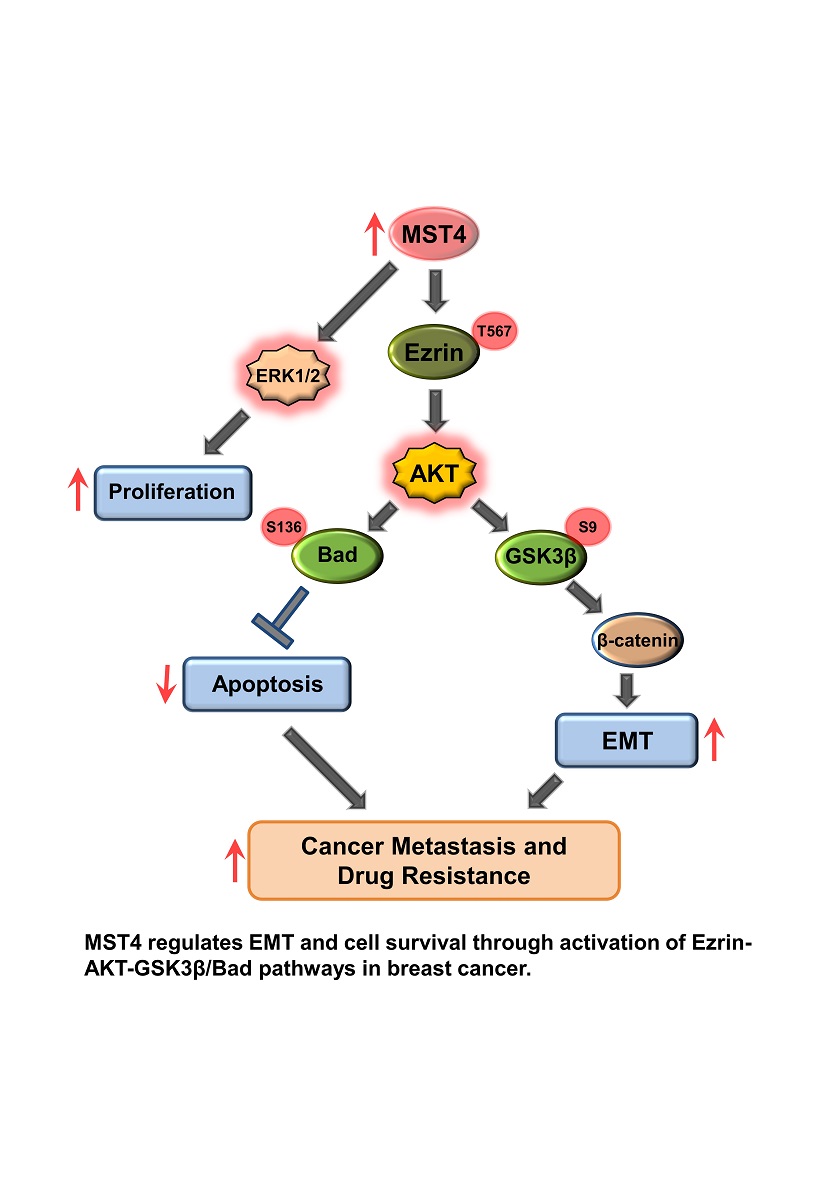The mammalian STE 20-like protein kinase 4 (MST4) gene is highly expressed in several cancer types, but little is known on the role of MST4 in breast cancer and the function of MST4 during epithelial-mesenchymal transition (EMT) has not been fully elucidated. Here, we report that overexpression of MST4 in breast cancer results in enhanced cell growth, migration, and invasion, whereas inhibition of MST4 expression significantly attenuates these properties. Further study shows that MST4 promotes EMT by activating Akt and its downstream signaling molecules such as E-cadherin/N-cadherin, Snail, and Slug. MST4 also activates AKT and its downstream pro-survival pathway. Furthermore, by analyzing breast cancer patient tissue microarray and silicon datasets, we found that MST4 expression is much higher in breast tumor tissue compared to normal tissue, and significantly correlates with cancer stage, lymph node metastasis and a poor overall survival rate (p<0.05). Taken together, our findings demonstrate the oncogenic potential of MST4 in breast cancer, highlighting its role in cancer cell proliferation, migration/invasion, survival, and EMT, suggesting a possibility that MST4 may serve as a novel therapeutic target for breast cancer.

